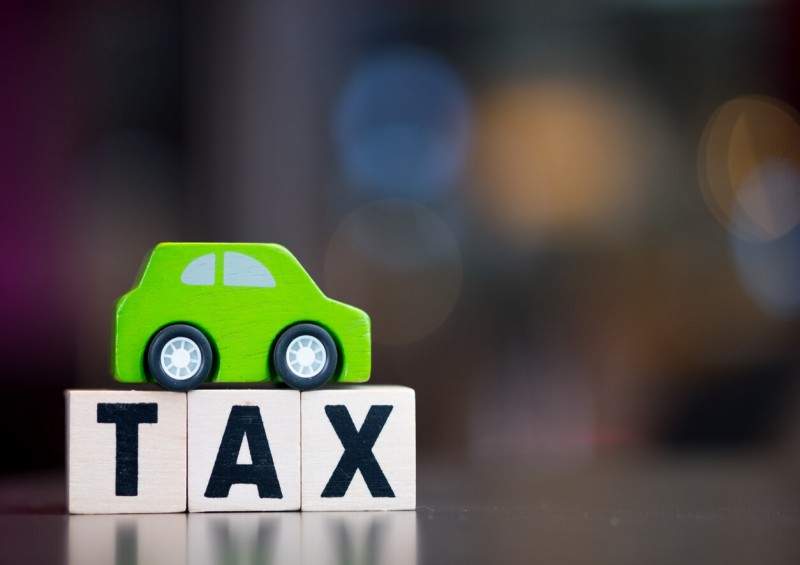Road Tax (VED) Will Increase in April 2020

Vehicle Excise Duty (VED) rates – otherwise known as road tax or car tax – are increasing in April 2020.
The new road tax changes mean that regular drivers could be left hundreds of pounds worse off, but employees that drive an electric car through their company could see their BIK tax decrease to 0%.
Here’s a summary of the changes, why they are happening and how they might affect you.
What is the April 2020 car tax increase?
Vehicle Excise Duty (VED) is a type of annual road tax that all drivers know about, but the amount you are required to pay depends on a range of factors such as your vehicle’s engine size, fuel type and the amount of CO2 emissions it generates (when it was first registered).
For these reasons, diesel car owners pay more than they would if they drove a petrol vehicle, while those who own an electric car are entirely exempt from road tax.
As a rule of thumb, the lower your CO2 emissions are, the lower your car tax rate will be.
Road tax has traditionally been calculated using the (not so) New European Driving Cycle (NEDC) test, which was developed and introduced in the 1990s. Due to the vast technology advances the industry has seen since then, the NEDC test has become outdated and does not truly represent real-life driving anymore, according to those in charge.
Due to the limitations of the NEDC test, a new method has been developed to replace it – the Worldwide Harmonised Light Vehicle Test Procedure (or WLTP as it’s thankfully more commonly known).
What is WLTP?
WLTP is a new method of giving a more accurate and realistic evaluation of the fuel consumption (mpg), driving range and CO2 emissions (g/km) of vehicles. It will be used to calculate car tax bands and the VED rate at which certain vehicles will be charged.
As a result of this new method, many vehicles’ CO2 emissions will change and you could face a higher road tax cost when you buy a new vehicle after April 1st.
The main road tax changes and conclusions from the new method include the following:
- WLTP calculations do not match NEDC values.
- On average, WLTP results reported CO2 emissions at around 20-25% higher than the previous NEDC method.
- Diesel vehicles are affected slightly more than their petrol counterparts.
- Vehicles with smaller engines (and lower emissions) had above-average increases in values reported by the WLTP method. Cars with higher CO2 emissions, on the other hand, are reportedly not as greatly impacted.
- VED receipts could increase by around £200 million a year on average from 2020-21 onwards.
- Company car tax receipts could increase by £100 million in 2020-21, rising to £400 million by 2023-24.
Company car tax changes on electric vehicles
There’s some good news for employees that are eligible for an electric car!
Those who drive a company car currently pay benefit-in-kind tax (BIK tax) at a rate of 16% when they opt for a fully electric vehicle, but that will be lowered to 0% after the 6th of April, 2020. This means that drivers of fully electric cars will pay no benefit-in-kind tax whatsoever as a result of the new rates.
It will then increase to 1% in 2021/22 and then 2% in 2022/23, but these rates are still considerably lower than they were previously and could save employees hundreds of pounds.
When will the road tax increase? Will I be affected?
The WLTP method will be utilised from the 1st of April 2020 for VED, but changes for benefit-in-kind tax on company cars will be slightly later from the 6th of April.
The change will only impact your first VED payment when you buy and register a new vehicle after the 1st of April 2020. Your existing vehicle will not be affected, but you will probably pay more in car tax if you buy a new vehicle after the 1st of April.
Beating the vehicle tax increase
You could save a fair bit of money on your first year of VED if you buy your vehicle before the new WLTP method comes into play. Take the Mazda CX-5, for example. Under the current VED band, its road tax would cost £530, but as of April 2020, it will increase by £750 and set you back £1,280.
If you plan on buying a new car, buy it before April 2020, or be sure to start putting savings in place to cover the cost.
You might like:
Vehicle Excise Duty (Car Tax) Explained
